Latest News
What was 1398 – March 2019 through March 2020 – like, in terms of security?
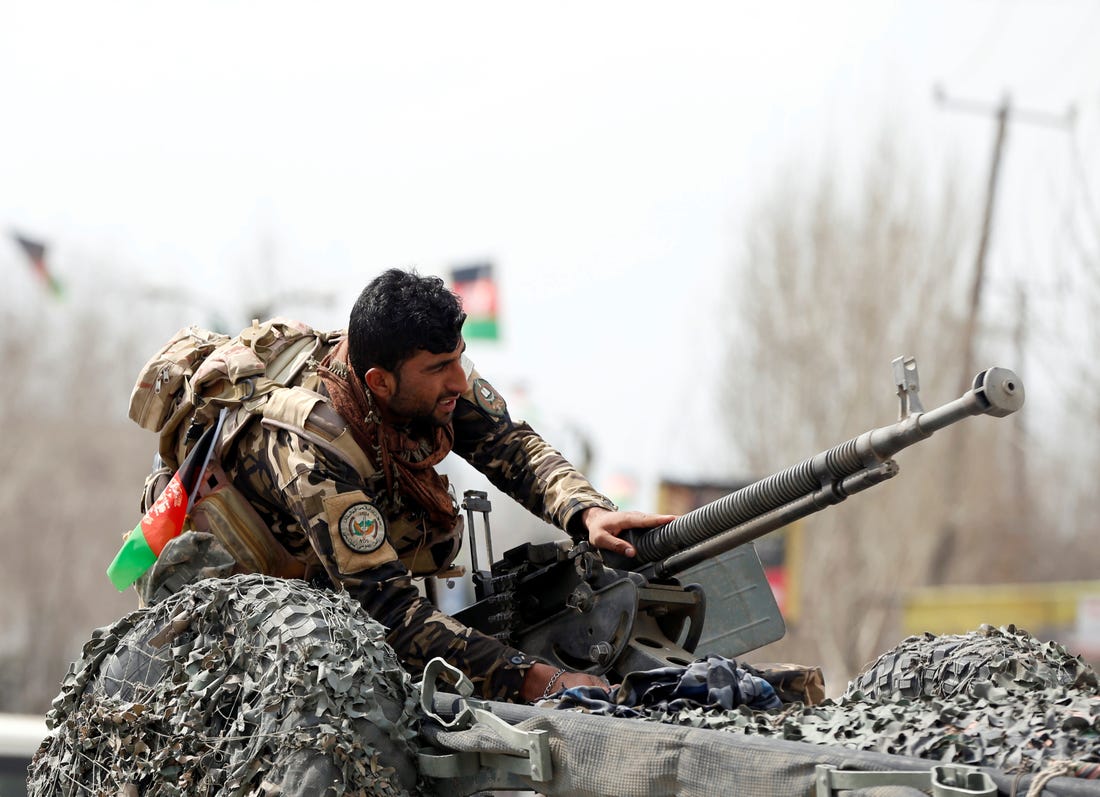
 The year 1398, scaling between March 2019 and March 2020, saw a term of reduction in violence for the first time by the parties in conflict.
The year 1398, scaling between March 2019 and March 2020, saw a term of reduction in violence for the first time by the parties in conflict.
According to Ariana News reports, the government’s opposition forces, the Taliban and Daesh in particular, conducted at least 21 deadly attacks, killing and injuring hundreds. The Afghan government, on the other hand, marks 1398 as ‘worse’ for the opposition forces coming under thousands of military operations.
The 1398’s bloody attacks are penned as follows:
- Three consecutive blasts on Nawroz – Persian News Year – festival, Kabul; seven killed, four wounded, and no one claimed responsibility.
- Two blasts on Nawroz – Persian News Year – festival, Lashkar Gah; killing 3, injuring 3, the Taliban claimed responsibility.
- Two blasts in Jalalabad; 5 killed, 5 wounded, responsibility unknown.
- Attack on the Counter-Part Organization; 7 killed, 5 wounded, Taliban claimed responsibility.
- A suicide attack on Marshal Mohammad Qasim University; 7 killed, 9 wounded; Daesh claimed responsibility.
- A car bombing in the 9th district of Kabul; 7 killed, 3 wounded, Taliban claimed responsibility.
- A suicide bomber on a police car in Jalalabad; 9 dead, 12 wounded, the responsibility unknown.
- An attack in the Maroof district of Kandahar; eight employees of the Independent Election Commission were killed and the Taliban claimed responsibility.
- An attack in 16th district of Kabul; 9 killed, dozens wounded including 55 children. The Taliban claimed responsibility.
- A car bomb in Ghazni; 7 killed, 5 wounded, Taliban claimed responsibility.
- An explosion on the Khakrez road, Kandahar province; 9 killed, 20 wounded, the responsibility unknown.
- A suicide attack in front of Kabul University; 8 killed, 33 wounded, Daesh claimed responsibility.
- A car of the Ministry of Mines hit by a car bomb; 11 dead, 45 wounded, and the Taliban claimed responsibility.
- An attack in the Kijran district of Daikundi; 10 policemen killed, 7 injured, the Taliban claimed responsibility.
- A car bomb in the Aband district of Ghazni; 4 policemen killed, 11 policemen and 8 civilians wounded, the Taliban claimed responsibility.
- An attack on the office of the Green Trend in Kabul; 30 killed, 50 wounded, responsibility unknown.
- An explosion on the Kandahar-Herat highway, killing 34 civilians, injuring 17, responsibility unknown.
- An explosion in the Jaghato district of Wardak province; 5 civilians killed, 3 wounded, no claimed responsibility.
- A car bomb on a security checkpoint in the 6th district of Kabul; killed 18, wounded 145, and the Taliban claimed responsibility.
- A suicide bomber at a wedding hall in the west of Kabul, killing 63, wounding 182, Daesh claimed responsibility.
- Suicide bombing in Kabul’s Makrurayan; killed 10 civilians and 2 foreign troopers, 42 wounded, Taliban claimed responsibility.
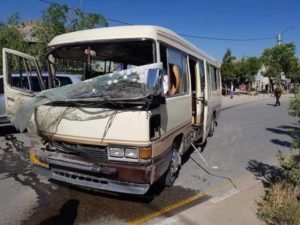 On the other hand, Interior Ministry officials say that this year, the police conducted two thousand and five hundred operations against insurgents. Although the casualties of the Afghan police are kept unrevealed, the year has been fatal for them too.
On the other hand, Interior Ministry officials say that this year, the police conducted two thousand and five hundred operations against insurgents. Although the casualties of the Afghan police are kept unrevealed, the year has been fatal for them too.
Tariq Aryan, a spokesman for the Interior Ministry, said that during 1398, the security forces were able to capture more areas from the Taliban.
This year, the Afghan forces and the armed oppositions took control of some districts on and off, but the Ministry of Defense says fourteen districts have been withdrawn from the Taliban.
Fawad Aman, the deputy spokesman for the Ministry of Defense, also said that this year was a ‘bad year’ for the Taliban.
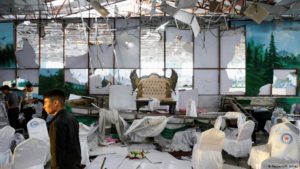 Airstrikes by Afghan and foreign forces were also accompanied by civilian casualties. Ghani also has been criticized for the continuous attacks. The Independent Human Rights Commission says eleven thousand civilians have been killed and injured this year.
Airstrikes by Afghan and foreign forces were also accompanied by civilian casualties. Ghani also has been criticized for the continuous attacks. The Independent Human Rights Commission says eleven thousand civilians have been killed and injured this year.
Sher Mohammad Karimi, former Afghan Army Chief of Staff says: “Security forces should have been kept away from political agendas.”
President Ghani announced lately that the Daesh in the east had been defeated – the peace talks were heated up, the war got a bit cold and for the first time, the parties in conflict agreed on a seven-day reduction in violence. Ariana News’ findings suggest that millions of Afghanis were saved of the cost of the Afghan army during the RIV term.
Latest News
Tajik foreign minister urges international community to help Afghanistan address its challenges

Tajikistan’s Minister of Foreign Affairs, Sirodjiddin Mukhriddin, has called on the international community to step up assistance for Afghanistan as the country continues to face challenges.
Speaking at a press conference, Mukhriddin said Tajikistan and Afghanistan maintain active coordination between their law enforcement agencies to prevent security incidents along their shared border. He noted that this cooperation remains essential, as the frequency of armed attacks and criminal activity in border regions has increased in recent months.
He said that Afghan authorities had assured Tajikistan they would take necessary measures to stop further incidents and would conduct thorough investigations into any violations.
Mukhriddin emphasized that Tajikistan supports constructive international engagement aimed at improving Afghanistan’s socio-economic conditions. He highlighted that Tajikistan has provided more than 6,000 tons of humanitarian aid to Afghanistan, including food and essential supplies delivered in 2025 to assist communities affected by devastating earthquakes.
The minister also pointed to growing economic cooperation between the two neighbors. Tajikistan has reopened border markets and continues to supply electricity to Afghanistan.
Tajikistan and Afghanistan share a border of more than 1,300 kilometers—over 1,100 km of which consists of waterways and about 190 km of land boundaries.
Meanwhile, Zafar Samad Director of the Drug Control Agency under the President of the Republic of Tajikistan, has said that last year, 17 incidents of clashes happened with drug smugglers along the border with Afghanistan. As a result, two Tajik forces and 10 Afghan nationals have been killed, he added.
Latest News
Baradar: Afghanistan is not an easy target, but a ‘bitter tree’

Mullah Abdul Ghani Baradar, Deputy Prime Minister for Economic Affairs, warned during a graduation ceremony for soldiers of the Ministry of National Defense that the Islamic Emirate will respond decisively to anyone with ill intentions toward Afghanistan.
He said the country is “not an easy target, but a bitter tree that has made the throats of empires bitter and newborns can never digest.”
Baradar also announced that in the coming days, the Islamic Emirate will introduce tax exemptions of one to five years for domestic and foreign investors, based on the level of investment in new sectors. He also said that the process of distribution of land to manufacturers will be accelerated.
Baradar called on countries to engage in political and economic relations according to the values and principles of the Islamic Emirate, emphasizing that energy and resources spent on conflict would be better used to support one another and strengthen common interests.
Latest News
Fourteen former Afghan government forces killed in last three months of 2025: UNAMA
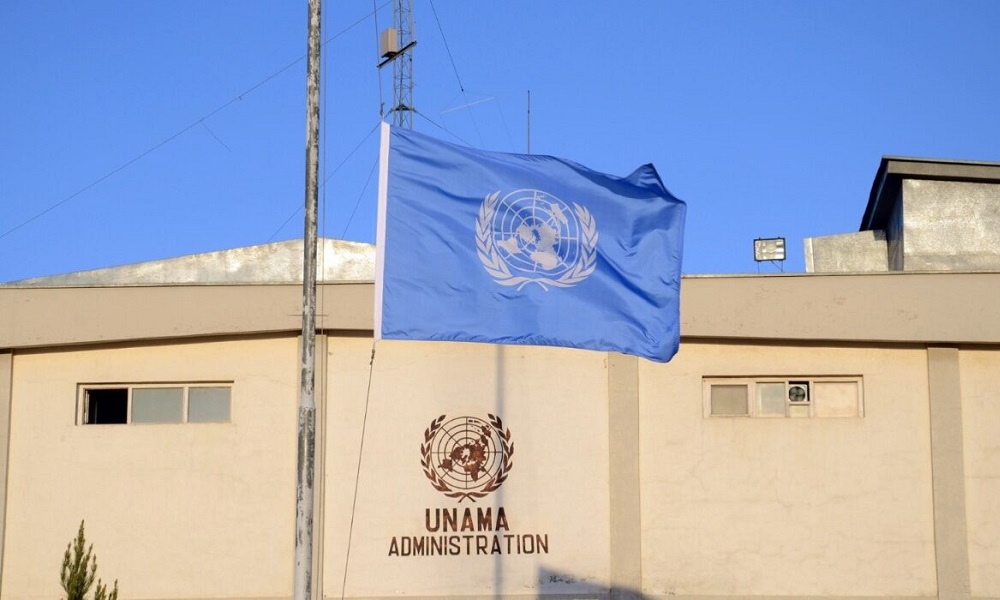
The United Nations Assistance Mission in Afghanistan (UNAMA), in its latest report on the human rights situation in Afghanistan, stated that 14 members of the former Afghan government forces were killed in the last three months of 2025.
The report noted that during this period, there were 28 cases of arbitrary arrest and detention, and at least seven cases of torture and ill-treatment targeting officials and personnel of the former Afghan government.
According to the report, some of the officials and forces who had recently returned to Afghanistan from Iran and Pakistan were among those subjected to extrajudicial killings, arbitrary arrests, and detentions.
The report also highlighted restrictions on women’s work and movement, executions and flogging of individuals, and disruptions to internet and telecommunications services.
-

 Sport5 days ago
Sport5 days agoHosts and heavyweights advance as AFC Futsal Asian Cup reaches semifinals
-

 Latest News4 days ago
Latest News4 days agoTerrorist threat in Afghanistan must be taken seriously, China tells UNSC
-

 Latest News5 days ago
Latest News5 days agoUzbekistan, Pakistan advance Trans-Afghan railway project
-

 Latest News2 days ago
Latest News2 days agoAfghanistan to grant one- to ten-year residency to foreign investors
-

 Sport5 days ago
Sport5 days agoWinter Olympics finally underway, ATN to broadcast exclusively across Afghanistan
-

 Sport5 days ago
Sport5 days agoAfghanistan beat West Indies in final T20 WC warm-up match
-

 Sport3 days ago
Sport3 days agoIndonesia shock Japan to reach historic AFC Futsal Asian Cup final
-
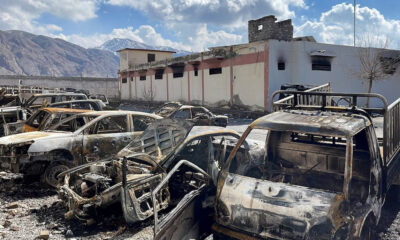
 Regional5 days ago
Regional5 days agoPakistan sends helicopters, drones to end desert standoff; 58 dead
















